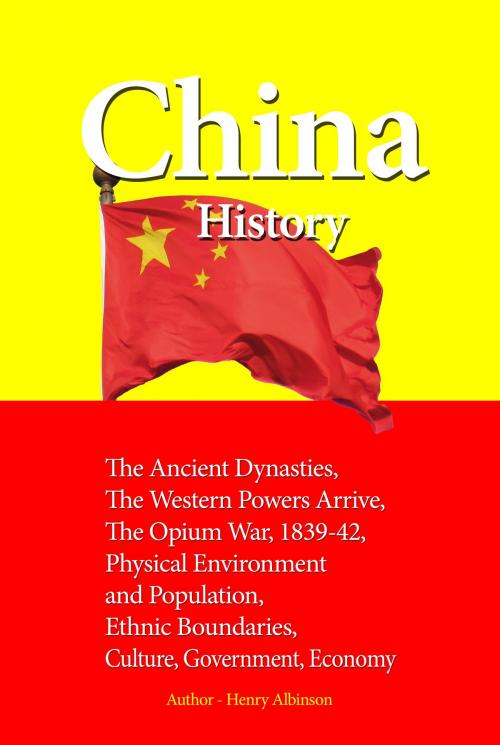| Author: | Henry Albinson | ISBN: | 9781310125935 |
| Publisher: | Sonit Education Academy | Publication: | June 25, 2016 |
| Imprint: | Smashwords Edition | Language: | English |
| Author: | Henry Albinson |
| ISBN: | 9781310125935 |
| Publisher: | Sonit Education Academy |
| Publication: | June 25, 2016 |
| Imprint: | Smashwords Edition |
| Language: | English |
The history of China, environment, people, culture and developments. Chinese civilization, as described in mythology, begins with Pangu, the creator of the universe, and a succession of legendary sage-emperors and culture heroes who taught the ancient Chinese to communicate and to find sustenance, clothing, and shelter. The first prehistoric dynasty is said to be Xia, from about the twentyfirst to the sixteenth century B.C. Until scientific excavations were made at early bronze-age sites at Anyang, Henan Province, in 1928, it was difficult to separate myth from reality in regard to the Xia. But since then, and especially in the 1960s and 1970s, archaeologists have uncovered urban sites, bronze implements, and tombs that point to the existence of Xia civilization in the same locations cited in ancient Chinese historical texts. At minimum, the Xia period marked an evolutionary stage between the late neolithic cultures and the typical Chinese urban civilization of the Shang dynasty
The history of China, environment, people, culture and developments. Chinese civilization, as described in mythology, begins with Pangu, the creator of the universe, and a succession of legendary sage-emperors and culture heroes who taught the ancient Chinese to communicate and to find sustenance, clothing, and shelter. The first prehistoric dynasty is said to be Xia, from about the twentyfirst to the sixteenth century B.C. Until scientific excavations were made at early bronze-age sites at Anyang, Henan Province, in 1928, it was difficult to separate myth from reality in regard to the Xia. But since then, and especially in the 1960s and 1970s, archaeologists have uncovered urban sites, bronze implements, and tombs that point to the existence of Xia civilization in the same locations cited in ancient Chinese historical texts. At minimum, the Xia period marked an evolutionary stage between the late neolithic cultures and the typical Chinese urban civilization of the Shang dynasty















